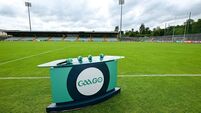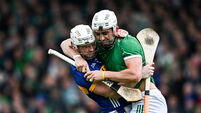Writing a new Blue Book
But for the majority of the fit, young and able who entered through its Griffith Avenue gates in the early months of the last two years, the sign might as well have read “Welcome To Hell”.
St Clare’s was no Crusheen; it didn’t have a back-breaking hill but it was still a hurt locker. A House of Pain. And yet on freezing, pitch-black January mornings they fought their way through snowed-in driveways and ungritted roads to get there.












